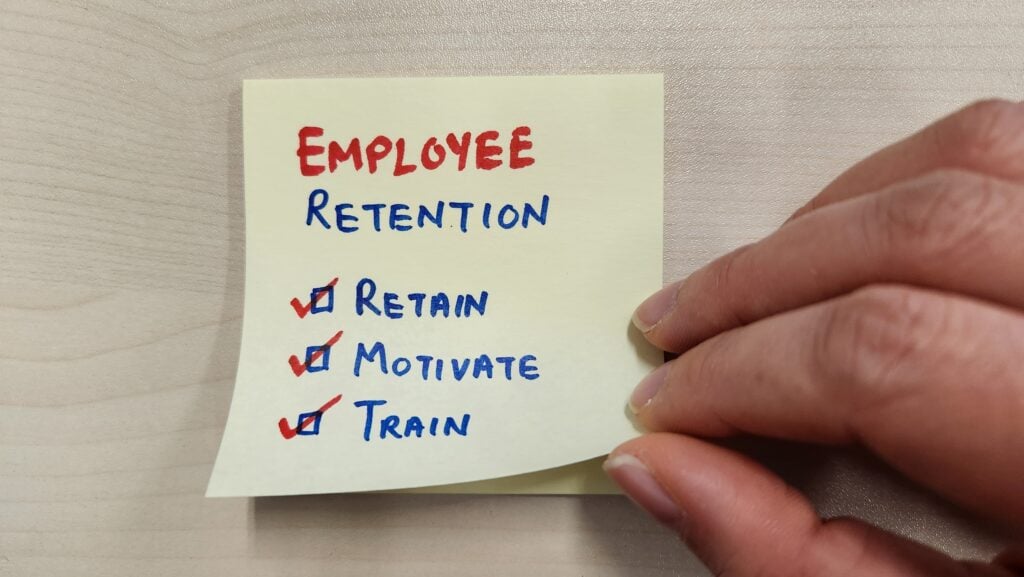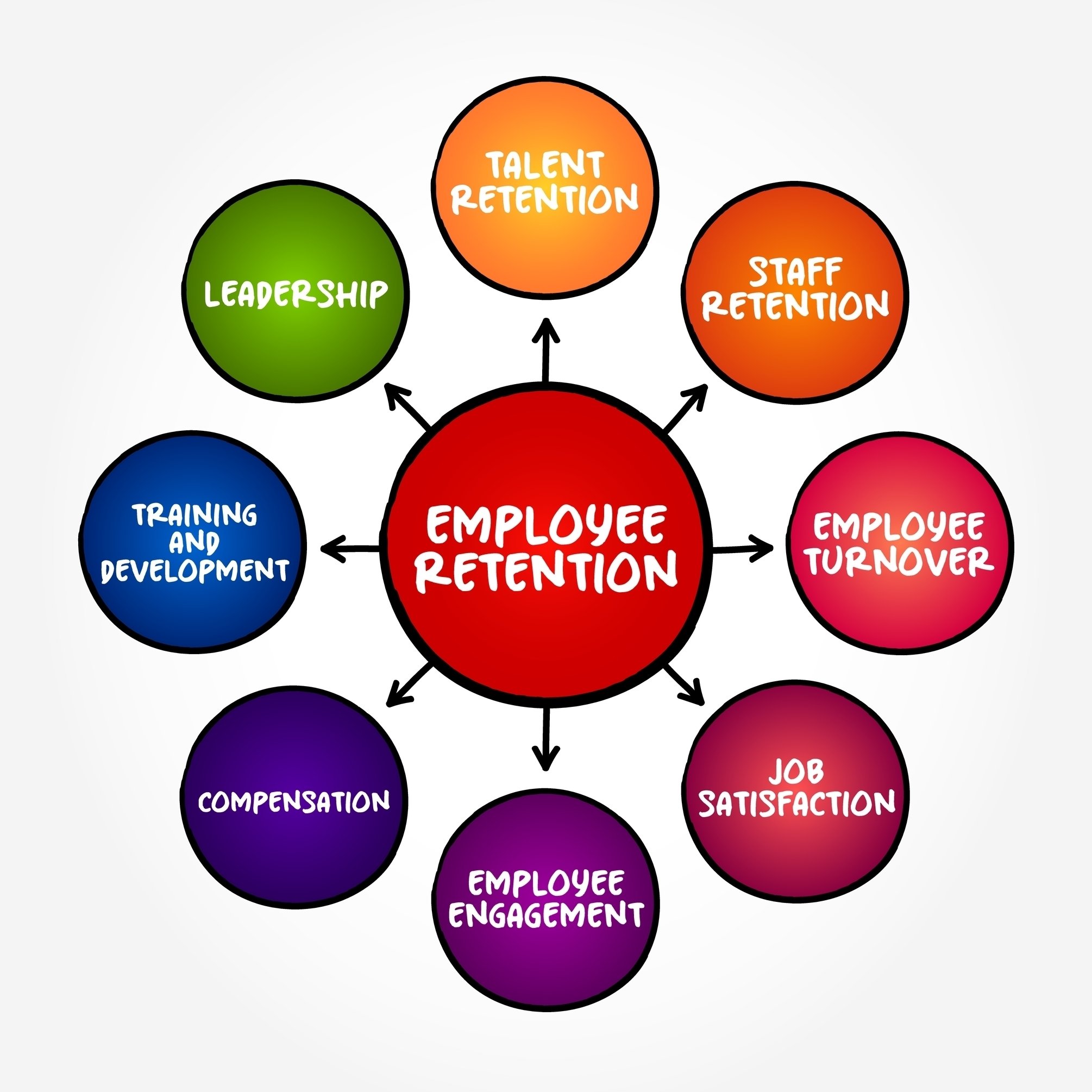Employee retention is one of the major challenges companies face today. Retaining employees has become a success factor for businesses to stay competitive and profitable.
Therefore, employers should understand why employees leave and others stay and how to retain valuable and top talents in their organizations.
It’s critical for employers to understand what employees value so they can reduce the turnover rate. Organizations should do everything in their power to protect valuable employees. This article will delve into employee retention strategies that contribute to the success of the organization.
Let’s explore why employee retention matters, what contributes to job satisfaction, and strategies employers can implement to achieve business success.
Let’s get started.
Table of Contents
What is employee retention?

Did you know that losing an employee is expensive? It’s not only financially expensive, but you also lose greatly as you invest your time, energy, expertise, and resources into nurturing talent.
Employee retention is the ability of an organization to retain a strong workforce. Employers can achieve employee retention through the following:
- Compensation and benefits
- Insurance policies
- Office perks
- Leave allowances
- Great work culture
- Flexible working environment and much more.
Organizations enforce these practices to improve employee satisfaction and prevent them from leaving.
Organizations’ main aim when hiring employees is to keep them for a long period of time rather than lose them. Losing employees is a huge expense that companies incur when hiring and training new staff. Also, losing an experienced employee can negatively affect the company’s productivity and institutional knowledge.
Why is employee retention important?
The strategy you use to get your talented workforce lays a foundation for your business success. Employee retention supports the success and health of your organization. This is because organizations are more likely to evade the negative impact that’s brought by employee turnover.
High employee turnover is mostly centered around a poor workplace culture. This makes employees feel they are a better fit in a different company, which is why employee retention is important.
- Reduced Company Cost
- Sustain Company Productivity
- Increased Revenue
- Stay Competitive
- Better Customer Experience
Effective employee retention strategies
Retaining good talent is vital for any employer. Employee retention isn’t only about preventing employees from leaving but also about creating a work environment where employees are motivated, engaged, productive, and growing their careers.

Wondering how you can retain your great employees? Here are effective employee retention strategies you can leverage:
1. Provide a Positive Work Environment
A positive work environment is crucial to employee satisfaction. A good work environment should encourage employees to give their best at work, concentrate on their work, have a great team health for collaboration and feel welcomed at work.
A great work environment fosters respect among employees and work relationships. This makes employees feel valued and appreciated, not only for work but for who they are. A positive work environment encourages employees to deliver at work and create a community within a workplace.
2. Offer a Competitive Salary Compensation and Benefits
Offering a competitive salary compensation and benefits can increase employee retention and compensation. It’s important for employers to regularly review salaries for the valuable employees.
Compensating them make them feel their work is valued thus they feel satisfied to work for you. To retain employees, ensure their pay is in line with or above the industry standards. Pay them what their time and effort is worth.
Your employees should not only receive a fair salary but also be able to afford the cost of living and all their needs. Their wages should increase as inflation increases and as their experience at work grows. Also, as responsibilities increase at work employee reward should as well increase.
Additionally consider offering your employees benefits such as, medical cover, compensation for overtime work, paid time off, and flexible working hours. These benefits enhance job satisfaction and employee loyalty.
3. Develop a Positive Company Culture Your Employees Want to be Part of
Another important strategy is building a healthy company culture your employees like and want to be part of. According to research done by Glassdoor in 2019, “77% of job seekers consider company culture before applying for a job. In addition, company culture is a factor why employees decide to stay at work.
A great company culture entails a work environment where employees feel supported by the top management, empowered and engaged. Have a free work environment where employees can develop healthy working tactics, build relationships both socially and at work. Having a meaningful company mission and involving your employees in decision making also helps you build a strong company culture.
4. Provide Career Growth and Development Opportunities
Employees are more likely to stay in companies where they can grow their careers and keep improving their skills. As an employer providing training to your employees, encouraging them to upskill and provide resources for career advancement is vital. When employees see that you are giving them a chance to grow, push them to be better and provide mentorship, they are more likely to stay loyal to your company.
As an employer, make it a priority to invest in your employees’ personal and career development. Give them time to learn and implement what they learn at work. This will be a plus for both you and the employee.
5. Encourage and promote a work-life balance for your employees

Work-life balance is important for you and your employees too. Remember that its not always about work. You need some time to recharge and focus on your personal life. Employees who find their work too demanding and their personal lives affected tend to seek other employment alternatives.
Work-life balance entails having a flexible work schedule, working on weekdays and, taking time off on weekends, and engaging in social and team-building activities.
6. Introduce the hybrid work model – Let your employees work from home
A hybrid workplace model is a key strategy that increases employee retention. Here’s why, transitioning from In office to hybrid work model can greatly increase an employee productivity and satisfaction.
According to a research done by HR Executive on a Chinese Technology Company that randomly selected employees to work two days from home and three days from the office and others to work fully from the office. After the six month study the result showed that employees who used the hybrid working model had a 33% lower turnover , greater productivity, and greater job satisfaction than those working full time in the office.
Adopting a hybrid work model can help you retain your wonderful employees thus growing your business and increasing the revenue. Here are ways the hybrid work model benefits employees:
- Increases the staff wellbeing and have a work-life balance
- It fosters trust and working relationships.
- Employees get enough time to learn and develop their skills
- A hybrid work model puts you ahead of the competition because good talents prefer workplace flexibility. With a hybrid model, you position yourself as an employer of choice, and you can attract new talent and retain employees.
7. Recognize and reward your employee achievements
Everyone wants their efforts and achievements to get recognized, and this gives a motivation to stretch even further. Same with employees, they want to receive credit where they did good. When employees feel valued at work they are less likely to look for a new job.
Its important for employers to recognize and reward employees who perform well at work. Rewarding their efforts increases your probability to retain them and in return they increase their productivity thus growing the business revenue.
8. Encourage effective communication and relationship at work

Employees who feel connected and have a good work and social relationship are more likely to share goals and objectives. In result, they are more productive and tend to deliver at work. This is because they can collaborate and communicate effectively at work.
Also, employees who have developed a good work relationship with their employers are efficient at work, satisfied and are loyal. As an employer, nature work relationships among your employees by holding team-building activities, professional outings, volunteer workshops, and company-sponsored social and sports events. This is a significant way to build relationships at work. With that in place, you are more likely to retain your employees.
Conclusion
In conclusion, to retain your employees you must use strategies that make them satisfied. Implementing the above mentioned strategies will help you retain your employees. This is a win-win situation for you, the employer and your employees. Employee retention is advantageous because it:
- Saves money as hiring and training is expensive
- Helps your business stay ahead of the competition
- Increase company productivity and fuels business growth as more revenue is generated.





